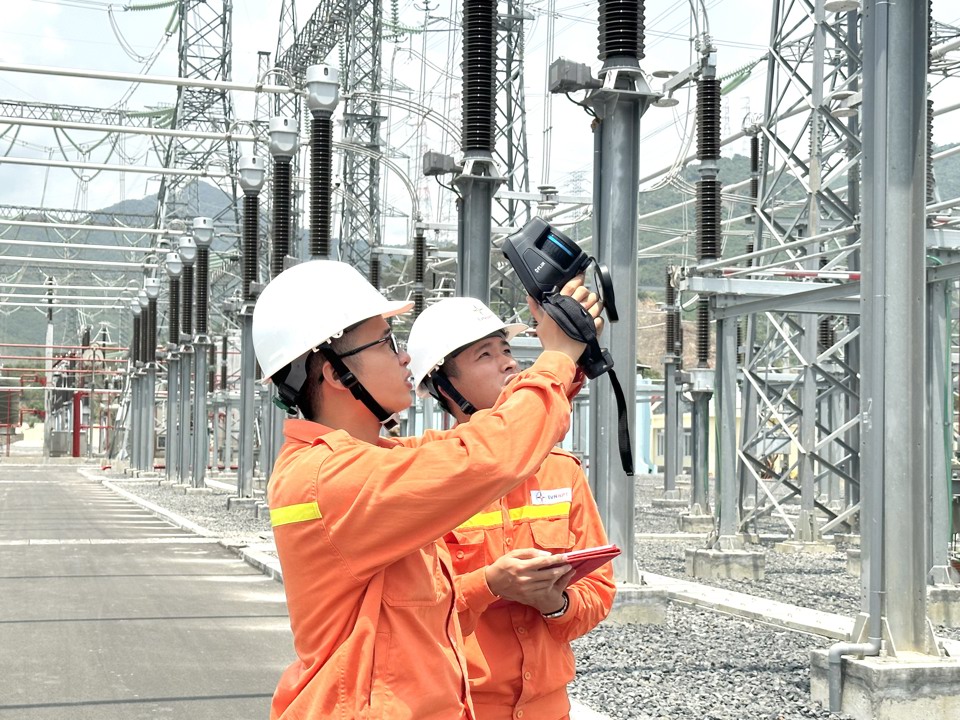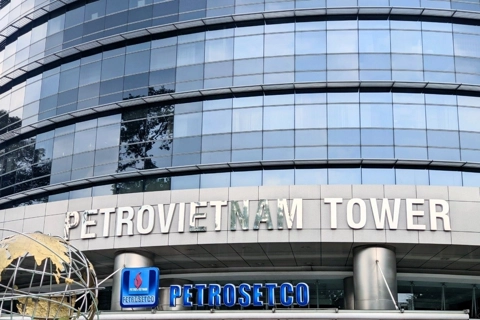Trade ministry proposes purchasing renewable electricity mechanisms without EVN’s involvement
The draft decree stipulates that buyers must be organizations or individuals using electricity for production from a voltage level of 22 kV or higher, with an average monthly consumption of 500,000 kWh.
The Ministry of Industry and Trade (MoIT) has proposed that the government allow manufacturing businesses to purchase electricity directly from renewable energy sources, such as wind and solar power plants, either with or without the involvement of the Vietnam Electricity Corporation (EVN).
| EVN's workers check on an electricity station. Photo: Khac Kien/The Hanoi Times |
This approach is outlined in a draft decree on the Direct Power Purchase Agreement (DPPA) mechanism developed by the Ministry of Industry and Trade (MoIT).
The draft decree stipulates that buyers must be organizations or individuals using electricity for production purposes at a voltage level of 22 kV or higher, with an average monthly consumption of 500,000 kWh. Suppliers must be grid-connected renewable energy plants (wind or solar) with a capacity of over 10 MW. Direct transactions for households are not permitted.
The MoIT has developed a direct power purchase model based on two options: through a private power line and the national grid via EVN.
When an organization or individual directly purchases electricity from a renewable energy plant through a private line, there are no restrictions on capacity, output, or connection voltage level. The contract terms and electricity prices are negotiated directly between the two parties. The only requirement is that the power sources must be part of the national and provincial power development plans and have a power license.
In the case of DPPA sales through the national grid, buyers and sellers negotiate and agree on fixed-price contracts. The transaction will be conducted on the spot market in accordance with the MoIT’s regulations on the competitive wholesale electricity market.
The DPPA mechanism has been requested on several occasions by foreign-invested companies in Vietnam, as they believe this policy will have a positive impact on competition in the energy sector.
The pilot DPPA draft was first presented for feedback by the ministry nearly three years ago, with an initial pilot capacity of 1,000 MW. At that time, many major corporations like Samsung proposed to participate.
In the latest draft, the MoIT indicates that after the initial pilot phase of DPPA between production power users and renewable energy sources, power projects could expand to include hydropower and biomass. In addition, the mechanism could be expanded to include other types of customers, such as businesses, depending on demand and the development of the competitive power market in Vietnam.
Customers in industrial zones, economic zones, and export processing zones can participate in direct transactions after terminating contracts with retail providers.
A survey conducted by the MoIT at the end of last year found that approximately 20 large companies were interested in purchasing electricity directly, with a total demand of nearly 1,000 MW. Additionally, 24 renewable energy projects with a capacity of 1,773 MW sought to sell electricity through the DPPA mechanism, and 17 projects with a capacity of 2,836 MW were considering participation.












